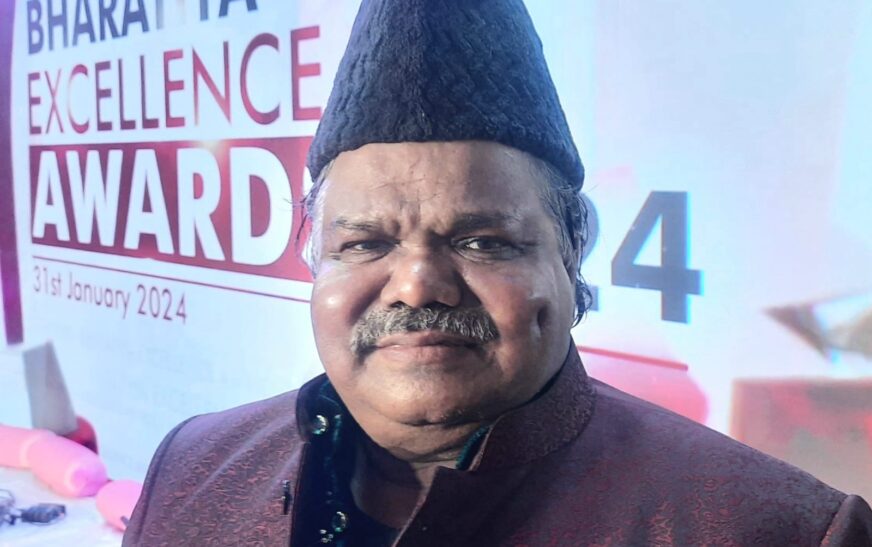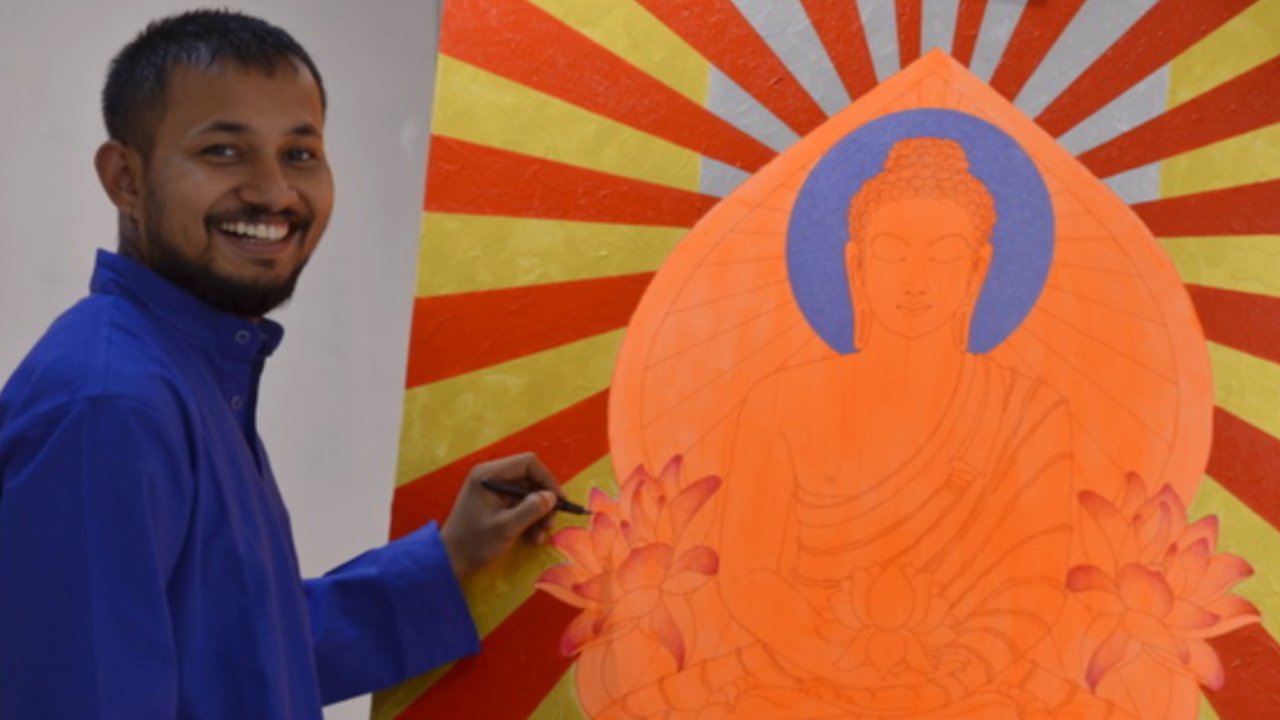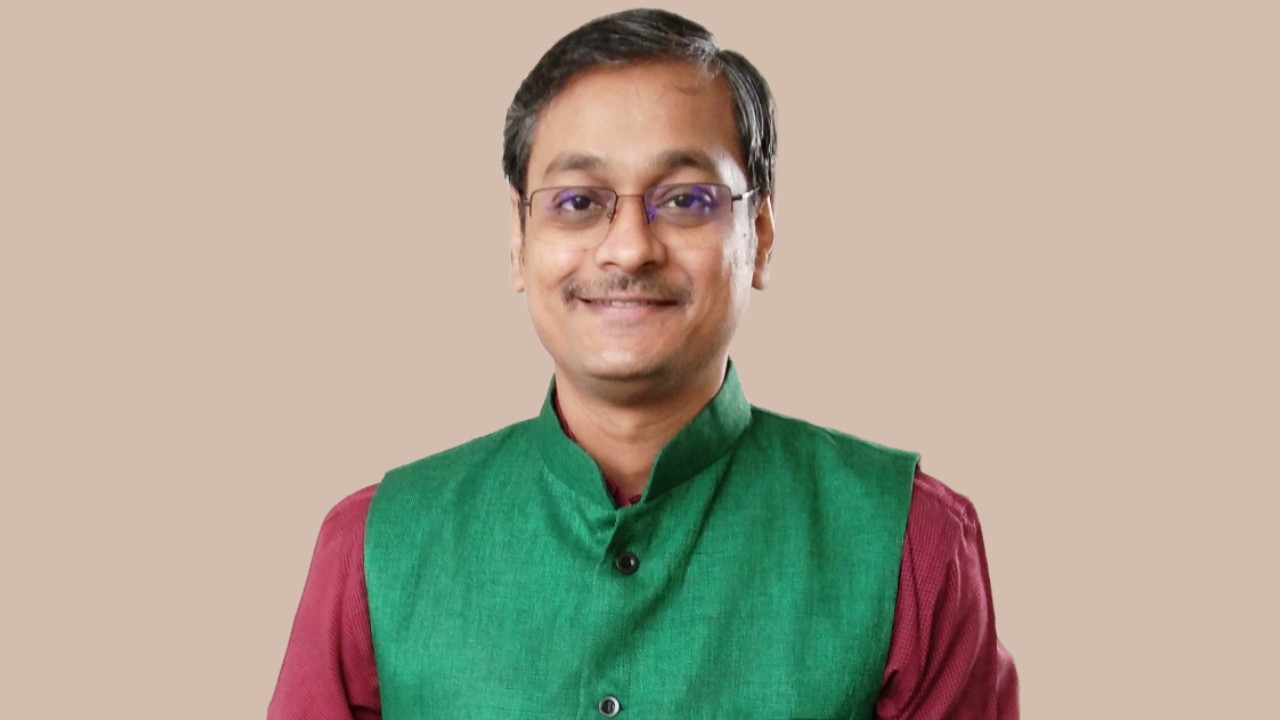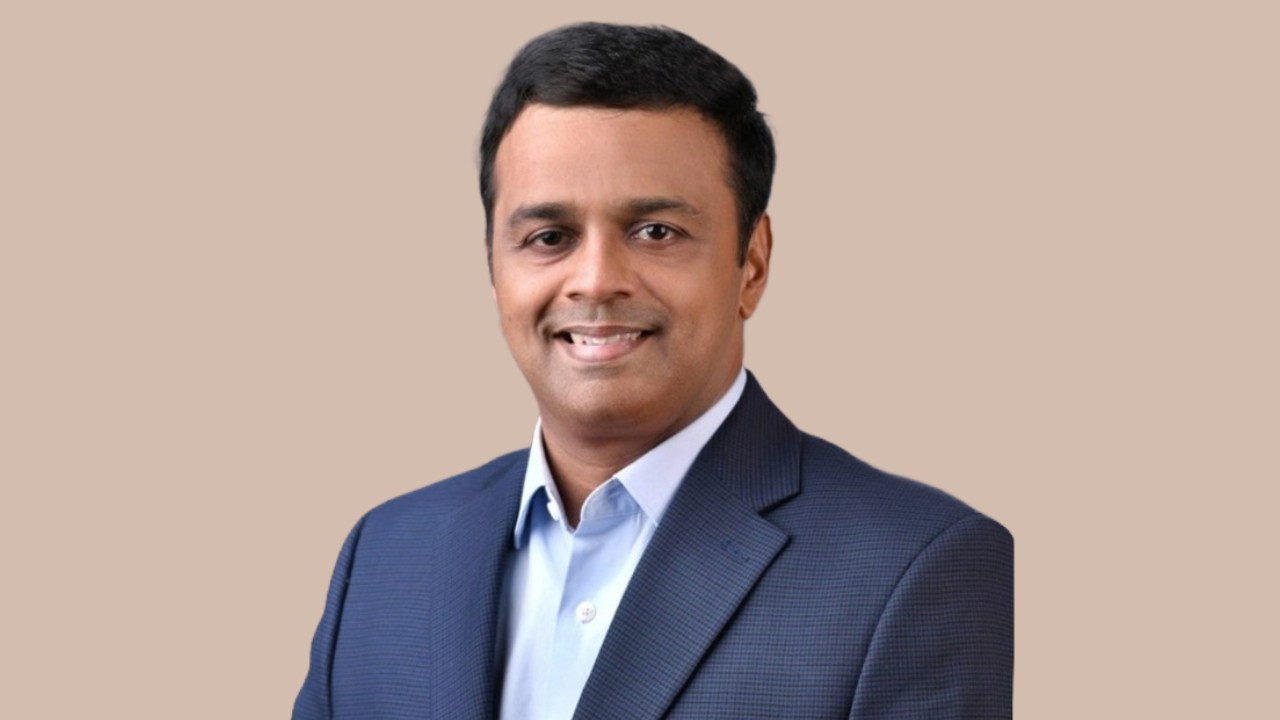Ustad Ameen Sabri stands out prominently in the vibrant world of Qawwali music. His performances accent their deeply moving impact and his mastery of this classical art form. Audiences worldwide laud his powerful vocals, profound lyrics, and unwavering dedication. His influence extends beyond borders and generations, leaving an enduring mark on South Asian culture and beyond.
Born into a respected family of Qawwals in Karachi, Pakistan, Ustad Ameen Sabri follows the rich tradition of Sufi music from an early age. He was part of the esteemed Sabri Brothers ensemble, founded by his father, Ustad Ghulam Farid Sabri, and his uncle, Ustad Maqbool Ahmed Sabri. Under their guidance, Ameen Sabri honed his skills, mastering the intricate melodies and spiritual essence of Qawwali.
Beginning his musical journey with the Sabri Brothers, Ameen Sabri, alongside the ensemble, mesmerized audiences with electrifying performances and a timeless repertoire. Their rendition of Sufi poetry, brimming with devotion and passion, resonated with millions, earning them acclaim worldwide. Furthermore, Ameen Sabri continued to captivate listeners with his velvety voice and profound interpretations of mystical verses. His command over the classical intricacies of Qawwali, combined with a deep understanding of Sufi philosophy, distinguished him as a virtuoso of his craft.
Throughout his illustrious career, Ustad Ameen Sabri garnered numerous accolades and honors for his contributions to music and culture. From prestigious awards to sold-out concerts, his legacy remains a source of inspiration for aspiring musicians and enthusiasts alike.
In an exclusive interaction with The Interview World, Ustad Ameen Sabri shares insights from his five-decade journey in singing Qawwali. Furthermore, he sheds light on people’s fascination with this genre and unveiling its nuances. Here are the key highlights from his interview.
Q: Could you share your unique experience with singing Qawwali?
A: For nearly five decades, I’ve dedicated myself to singing Qawwali. Unfortunately, despite our seniority and our role as mentors, those who learned Qawwali by observing us have been hailed as the true Sabri successors. Yet, my contributions extend far beyond mere apprenticeship. I’ve graced the music of the silver screen in over 150 films, including iconic titles like Heena, Pardesh, Love Ke Liye Kuch Bhi Karega, and many more. Some of these films have also even garnered prestigious awards.
Collaborating with India’s top playback singers such as Suresh Wadkar, Sonu Nigam, and Alka Yagnik has been a highlight of my career. Together, we’ve delivered memorable performances, including the timeless Der Na Ho Jaye with Lata Ji. Despite our accomplishments, opportunists now falsely claim association with the Sabri Brothers, a group they once had no affiliation with. In our era, the absence of social media meant our recognition came from reputable publications like Patrika, Mayapuri, and Times of India.
Throughout my journey, I’ve had the privilege of working alongside musical luminaries like Ravinder Jain and Ustad Ghulam Farid Sabri. The influence of our Ustad, Ali Jalaf Sai Sabri, reverberated across India and Pakistan, inspiring countless imitators. While Ghulam Fareed Sabri hailed from Pakistan, luminaries like Saeed, Fareed, and Amir Sahib emerged from India.
Today, my sons Ameer, Tanveer, Shabbir, and Sammi, alongside loyal friends who remain dedicated to our craft carry forward my legacy.
Q: What kind of excitement for Qawwali do you see among people today?
A: Qawwali persists as an enduring tradition, with many ghazal singers transitioning to qawwali performances. As these singers embrace qawwali’s rhythmic essence, they find it challenging to revert to ghazal renditions. Sufi songs and ghazals, fundamentally, stem from the rich tradition of qawwali. However, in contemporary Bollywood, there’s a regrettable trend of musicians imitating English music, thereby undermining the authenticity of our musical heritage. Classical music struggles to find a prominent place in today’s Bollywood scene, yet there are still authentic artists dedicated to preserving classical, ghazal, and qawwali forms.
Qawwali continues to exude its allure in Sufi shrines and dargahs across South Asia, remaining particularly renowned in Pakistan, India, Bangladesh, and Afghanistan. Its popularity has transcended borders, gaining a significant following globally since the late 20th century. Interestingly, those within the music industry who resist qawwali are often the very individuals incorporating it into Bollywood compositions.
Q: What defines the essence of the Qawwali tradition’s vocal expression?
A: Qawwali is a means of expressing one’s opinion. It echoes the words of Hazrat Mohammad, who said, “Man kunto maula, fahaza Ali un maula”. The thought translates to “To whoever I am a maula, this Ali is also their maula”. This profound statement finds resonance in qawwali performances. Just as other songs have their traditions of singing, qawwali possesses its distinct tone, tenor, and expression. When someone sings a ghazal, it often embodies the essence of qawwali.
Q: What cultural and artistic significance underlies the tradition of playing loud music in Qawwali performances?
A: Qawwali, originating from the Indian subcontinent, is a form of devotional music deeply rooted in the Sufi tradition. It is distinguished by its vibrant rhythms, recurring melodies, and impassioned vocals. In the past, without the aid of loudspeakers, qawwali singers honed their craft by projecting their voices loudly to ensure their message reached the ears of their audience. This practice also served other purposes, contributing to the inclusion of loud music in qawwali performances.
Additionally, qawwali thrives on audience engagement, encouraging listeners to clap, sway, and sometimes even dance along with the music. The amplification of sound fosters a communal atmosphere, elevating the spiritual experience through collective participation.
Furthermore, qawwali induces a profound sense of spiritual ecstasy and transcendence in both performers and spectators. The combination of robust, rhythmic music, repetitive chanting, and the accompaniment of instruments like the tabla and harmonium creates an immersive setting conducive to introspection and spiritual connection. Moreover, qawwali explores themes of love, longing, and devotion with unparalleled emotional intensity. Hence, the loudness of the music serves to magnify the emotional impact of the lyrics. Eventually, it intensifies the fervor and passion conveyed in the performance.









